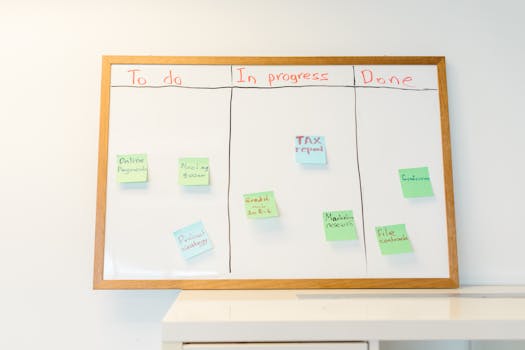
Introduction

Effective time management is crucial for enhancing productivity and ensuring that tasks are completed efficiently. From setting clear goals to prioritizing tasks, this article explores varied strategies that can significantly improve how you manage your time.
1. Setting Clear Goals

The first step towards effective time management is to set clear and achievable goals. Having explicit goals provides direction and helps focus your efforts on what matters. Implement the SMART criteria—making sure your goals are Specific, Measurable, Achievable, Relevant, and Time-bound.
1.1 Importance of Goal Setting
Without clear goals, it’s easy to drift along, reacting to tasks as they come, rather than proactively managing them. Clear goals allow you to channel your energy and manage your time wisely.
1.2 Techniques for Effective Goal Setting
- Visualization: Picture achieving your goals and how it will feel.
- Written Goals: Write your goals down; this makes them tangible.
- Bite-Sized Steps: Break larger goals into smaller, manageable tasks.
2. Prioritization of Tasks

Prioritizing tasks is vital in the time management process. It helps distinguish between urgent, important, and non-essential tasks, directing your attention and resources where they are most needed.
2.1 The Eisenhower Matrix
This tool categorizes tasks into four quadrants: urgent and important, important but not urgent, urgent but not important, and neither urgent nor important. Tasks identified as urgent and important should be tackled immediately, while others can be scheduled or delegated.
2.2 ABCDE Method
Label your tasks as A (very important), B (important), C (nice to do), D (delegate), and E (eliminate). This provides clarity on what tasks must be completed efficiently.
3. Planning Your Day

Creating a daily plan is advantageous in improving time management practices. It helps segment your available time and allocate specific hours to focus solely on tasks.
3.1 Time Blocking Technique
Time blocking involves segmenting your working hours into distinct time blocks dedicated solely to specific tasks—curtailing distractions and enhancing concentration.
3.2 Creating To-Do Lists
To-do lists are efficient tools to lay down what needs to get done each day or week. Include deadlines and priorities to help further streamline your workflow.
4. Avoiding Procrastination

Combatting procrastination can immensely improve time searching effectiveness. You must recognize the factors contributing to procrastination and develop strategies to overcome them.
4.1 Going ‘Pomodoro’
The Pomodoro Technique, focusing on 25-minute sprints followed by breaks, helps maintain motivation while decreasing fatigue. This has proven highly effective in curbing procrastination.
4.2 Mitigating Distractions
Create an environment conducive to productivity. This may involve limiting social media and notifications and setting boundaries with colleagues.
5. Reflection and Review

After implementing these strategies, it’s crucial to periodically reflect on your experiences and effectiveness. Analyze what works best for you and adjust your methods accordingly.
5.1 Weekly Reviews
Conduct weekly checks where you assess the tasks completed, goal progressions, and reflect on the strategies that facilitated or hindered your efficiency.
5.2 Adapting to Change
Adaptability is crucial in time management. Be receptive to changing circumstances and be willing to re-evaluate goals and strategies when necessary.
Takeaways

- Setting clear and specific goals will enhance focus.
- Prioritization using effective frameworks leads to more efficient time management.
- Daily planning and engagement with productivity games can keep procrastination at bay.
- Regular review will help refocus endeavors and highlight necessary adjustments.
Conclusion

Mastering time management is a continuous process requiring commitment to implementing various strategies. From understanding your priorities to creating robust daily plans, you can drive productivity explicitly, forcing distractions away while achieving your goals. Commit to these approaches, and you empower yourself to take charge of your time.






